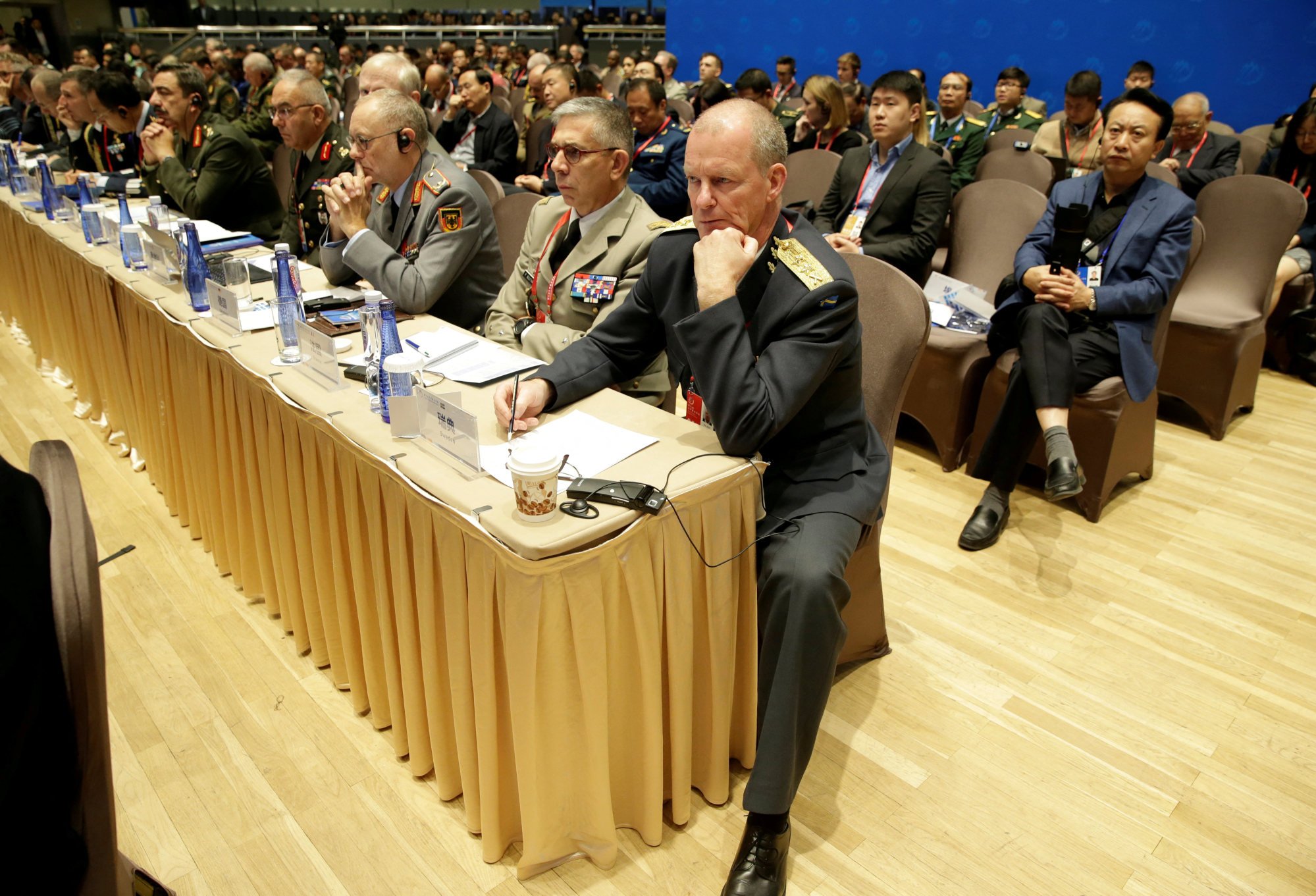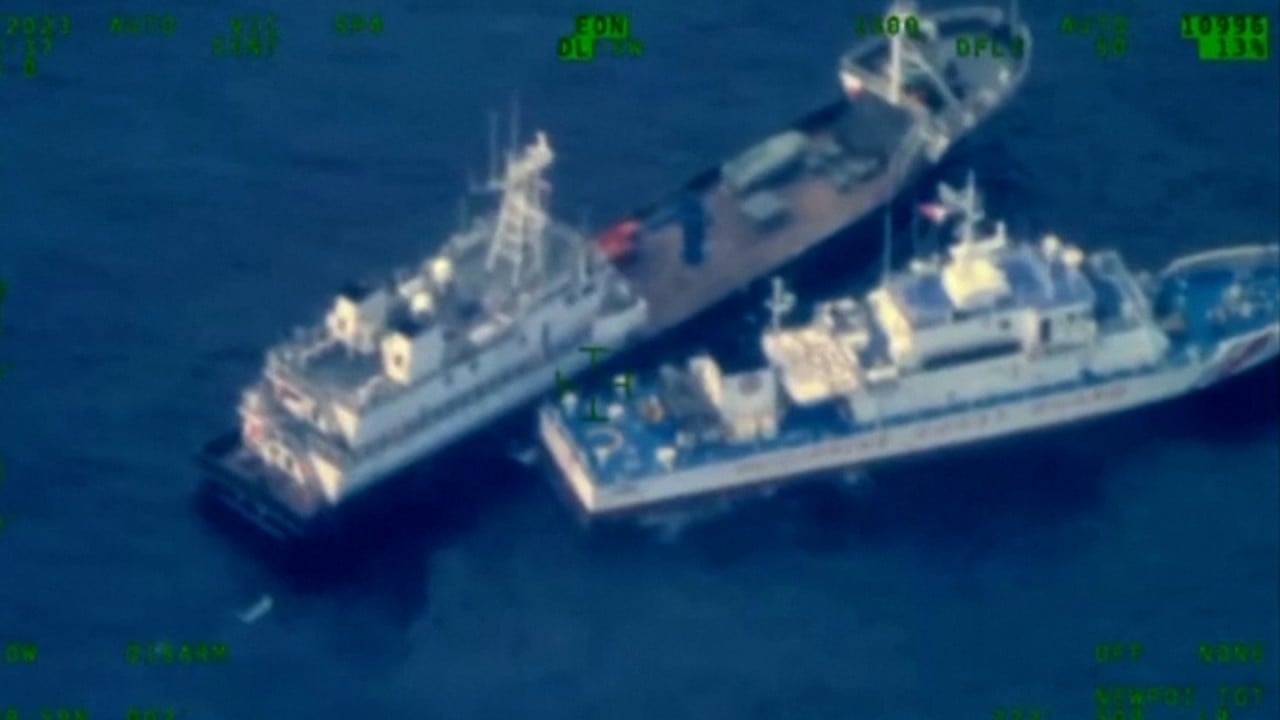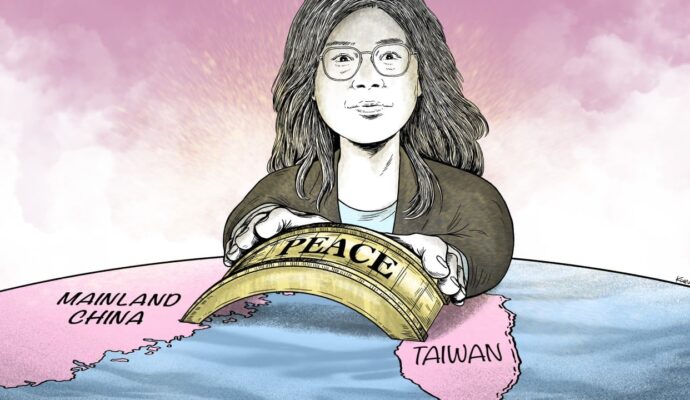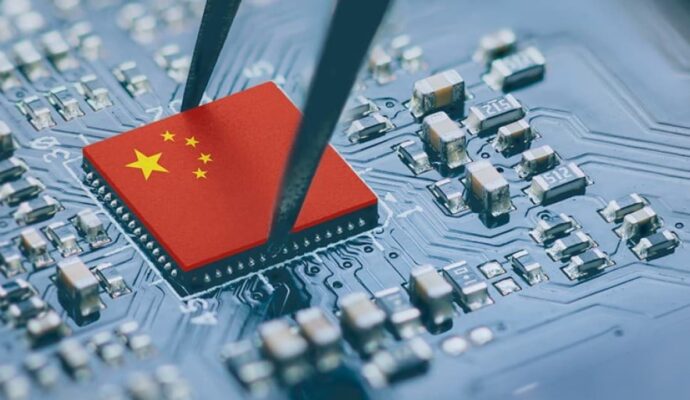
Most countries, including the US, do not see Taiwan as an independent state, but many are opposed to a change of status quo by force.
“Both sides, over the past few months, have been making overtures to one another,” Barton said. “[It] shows that when factored together, there does appear to be a mutually concerted desire to breathe new life into existing bilateral dialogue mechanisms and to foster political rapprochement.”
Nick Bisley, an international relations professor at La Trobe University in Melbourne, agreed. He said the Xiangshan Forum provided a “home court” advantage for Beijing and a venue to improve ties with key regional partners.
“While the Shangri-La Dialogue saw [China] refuse to meet with US [Secretary of Defence] Austin, Xiangshan may provide a useful opportunity to move US-China relations along the slightly more positive track that they have been on in recent months,” Bisley said.
Geopolitical tensions
As happens at other security forums, geopolitical competition between the US and China in the western Pacific is expected to be a focus at the Beijing gathering.
Raymond Kuo, director of the Taiwan Policy Initiative and a senior political scientist at US-based think tank the Rand Corporation, said both Beijing and Washington were likely to continue demanding the other side de-escalate military activities near Taiwan and the South China Sea.
“I expect China will demand that the US stay out of its ‘internal affairs’. Meanwhile, Washington will reiterate its commitment to the Philippines’ defence, warn Beijing against military provocations against Taiwan, and call for China to de-escalate an already tense region,” Kuo said.
“I don’t expect a change in any side’s policies, but I would expect both sides to use the forum as an opportunity to press other regional countries to align with their preferred goals or at least not align with the other’s goals.”
Stephen Nagy, a professor of politics and international studies at the International Christian University in Tokyo, did not expect any progress on Taiwan or the South China Sea.
“[China] will express strong concerns to the United States that they feel the US is … constantly pushing the boundaries of the one-China policy,” Nagy said. “On the South China Sea, the US will continue to send a message that they will sail their ships anytime, anywhere.”
Intense rivalry between the two militaries in the South China Sea and near Taiwan will loom over any exchanges.
Did China’s top general signal a restart in Beijing’s military diplomacy?
Did China’s top general signal a restart in Beijing’s military diplomacy?
Li Nan, a visiting senior research fellow at the East Asian Institute of the National University of Singapore, said recent US military activities near the Chinese coast would make Beijing wary about restarting talks.
“The trust is really diminishing to the point [that] it’s very difficult to resume dialogue,” Li said. “The Chinese position is hardening. For instance, military activities in the vicinity of China, particularly in the EEZs, and also overtures and strait transits in China’s coastal waters [has made Beijing] very upset.”
On Wednesday, China’s defence ministry again said difficulties in bilateral defence ties were “solely created by the US side”, accusing Washington of acting against Chinese interests. But it also called for better communication.
Missing defence chief
No replacement has been announced, leaving the office of China’s top military diplomat vacant.
“Given the recent shake-ups in China’s leadership, it makes it harder for the US to know who to speak to and whether that person actually has authority,” Kuo said.
“It’s already difficult enough for US policymakers to know whether they should speak with their counterparts in Chinese ministries or the analogous Communist Party branches,” he said. “All this makes maintaining a stable US-China relationship much more challenging.”
But Brian Hart, a fellow with the China Power Project at Washington-based think tank the Centre for Strategic and International Studies, said there was a “potential upside” to Li’s removal for military ties.
“For more than a year, military-military ties between the two countries have been severely cut off. Washington has been pushing to restore key areas of dialogue in order to avoid miscommunication … but Beijing has been resistant,” Hart said.
“The fact that Li Shangfu was sanctioned by the US complicated things. The arrival of a new defence minister could remove one of the barriers to military-military dialogue.”
Li has been under US sanctions since 2018 over the purchase of Russian weapons.
War in Ukraine
Defence officials from both sides of the war will attend the gathering in Beijing. According to the official website, Russian Defence Minister Sergei Shoigu will lead Moscow’s delegation, while Ukraine will send Petro Klymyshyn, the defence attaché at its embassy in the Chinese capital.
Barton from the University of Nottingham said while Ukraine would be raised at the forum, it was unlikely to be discussed during the plenary presentations or keynote addresses given Beijing’s stance on the war.
“Ukraine, naturally, is a critical conflict of our times but it is important to stress that it is not China’s conflict,” Barton said. “Bringing up the war in Ukraine might expose China to criticism from some participants that China’s actions in and around the conflict are not doing enough to stem the fighting.”
Israel-Gaza war
The Xiangshan Forum also takes place just weeks after Hamas launched a surprise attack against Israel earlier this month.
According to the forum website, Seyed Yahya Safavi Homami, an Iranian general and senior adviser to the supreme leader, and Alhassan Alhefdhi, Saudi Arabia’s acting deputy minister of defence for strategic affairs, will be among those attending. A few other Middle Eastern countries will also send defence attachés from their embassies in Beijing.
Both Beijing and Washington had a sizeable naval presence in the Middle East when the Gaza crisis began, and leaders of both countries have called for a ceasefire.
“The US and Chinese governments disagree on who is to blame. They have supported opposing parties in the conflict, with Washington backing Israel and China backing the Palestinians,” said Timothy Heath, a senior international defence researcher at the Rand Corporation.
“However, the two countries could find common ground on the need to bring humanitarian aid to the people of Gaza and on the need to bring peace and stability to the region as soon as possible.”
Barton did not expect any breakthroughs on the Gaza crisis.
“Generally speaking, the US and China do share the same view about … maintaining stability in the wider Middle Eastern region,” he said.
“Yet … this is also a highly sensitive and explosive topic from which little bilateral political capital can be gained, at a time when US-China relations are already at a relatively low ebb.”



